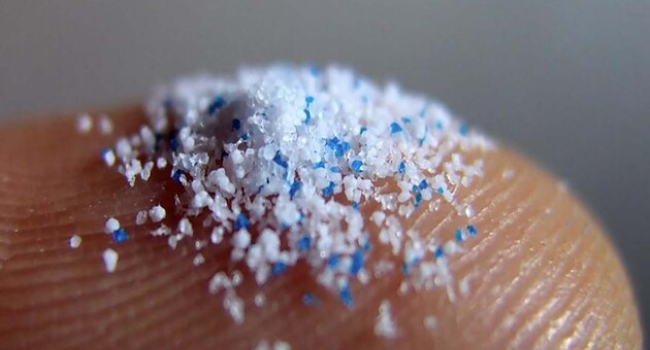- Latest news▼
-
14:07, July 26 Specialist: We have drop in hepatitis cases in Armenia, but rare cases of acute Hepatitis B and C are recorded

-
13:29, July 26 Nature Chemical Biology: Scientists develop new antibiotic against super bacteria

-
11:36, July 26 New deadly disease reported in the world

-
10:17, July 25 Researchers name oats that help lose weight almost like Ozempic

-
08:34, July 25 Using 'mini-lungs,' scientists find that more types of lung cells can be infected by SARS-CoV-2 than previously thought

-
14:31, July 24 Cyprus has seen increase in coronavirus cases

-
12:16, July 24 Developmental Medicine & Child Neurology: Botox injections could make walking easier in children with cerebral palsy

-
12:20, July 23 There is high risk of dengue fever spread in Iran, WHO announces

-
10:15, July 23 AIDS can end by 2030 if world leaders make the right decisions now, UNAIDS says

-
19:42, July 22 JAMA: A mother's healthy diet reduces the risk of having a child with autism by 22%

-
15:37, July 22 CellMet: interval fasting and a healthy diet improved brain function of the elderly

-
11:26, July 22 Nutrition: coffee reduces the risk of polycystic ovary syndrome

-
15:11, July 19 RFSN: Vitamin C deficiency in the body correlates with weight gain

-
08:38, July 19 Western diets increase the risk of inflammatory bowel disease and colorectal cancer - a review

-
20:45, July 18 Researchers have identified a signaling pathway that transforms epithelial cells into aggressive tumor cells

All materials
Researchers find microplastic particles in human placenta

Microscopic pieces of plastic have been found in most tissues of the human body, and a new study suggests they're also seeping into the placenta.
The results of this research were published in the journal Toxicological Sciences.
It was found that all samples of placenta taken from 62 women contained microplastics, according to a group of researchers from the University of New Mexico (UNM).
Microplastic concentrations varied widely, from 6.5 to 790 micrograms per gram of tissue.
The researchers emphasized that these amounts are still very small. A microgram is one-millionth of a gram, and the health effects of the placenta remain unknown. However, the obtained results are cause for concern.
For toxicologists, “dose makes the poison,” said the head of this research team, Matthew Campen, PhD, Regents’ Professor in the UNM Department of Pharmaceutical Sciences. “If the dose keeps going up, we start to worry. If we’re seeing effects on placentas, then all mammalian life on this planet could be impacted. That’s not good.”
Using sophisticated laboratory techniques, the researchers analyzed, with the help of gas production, function the relative concentrations of microplastics in tissues.
When their results were sorted by plastic found, polyethylene in plastic bottles and bags came out on top, making up about 54% of the samples found in the placenta's tissue.
Polyvinyl chloride—better known as PVC—made up about 10% of the samples, the researchers noted.
At the same time, however, they emphasized that the effect of microplastics on the human body has not yet been determined.
Researchers have long considered them to be inert substances, but Campen's team noted that some plastic "nanoparticles" are so small that they can penetrate individual cells, and their detection in the tissue of a placenta is puzzling.
The presence of microplastics in other tissues of the body could be expected because the particles accumulate over a long period of time, but the placenta has only been growing for eight months, Campen noted.
Follow NEWS.am Medicine on Facebook and Twitter
- Related News
- For the first time in medical practice, doctors have encountered a longitudinal fracture of the penis After a six-month rehabilitation period, he was able to return to a normal sexual life...
- 3-year-old girl urgently hospitalized with signs of infection was found to have a raisin stuck in her nose three months ago Three-year-old Peyton Handley first felt sick for the first time in February and was suffering from facial pain that caused her to cry...
- Conjoined twins in Indonesia born fused together like a 'spider' in ultra rare case Both boys have functioning upper limbs but were fused near their pelvis, and share a bladder and intestines...
- Mum, 32, almost dies from multiple blood clots after ‘GP prescribed wrong contraceptive pill’ Despite being reassured, Emma admitted she felt increasingly unwell...
- Journal of Biophotonics: Red light photobiomodulation lowers blood sugar levels, study finds Red light with a wavelength of 670 nanometers activates the processing of glucose in the body…
- Most read
month
week
day
- CellMet: interval fasting and a healthy diet improved brain function of the elderly 1224
- Nutrition: coffee reduces the risk of polycystic ovary syndrome 1157
- JAMA: A mother's healthy diet reduces the risk of having a child with autism by 22% 1109
- There is high risk of dengue fever spread in Iran, WHO announces 1085
- AIDS can end by 2030 if world leaders make the right decisions now, UNAIDS says 958
- Developmental Medicine & Child Neurology: Botox injections could make walking easier in children with cerebral palsy 793
- Cyprus has seen increase in coronavirus cases 707
- Researchers name oats that help lose weight almost like Ozempic 597
- Using 'mini-lungs,' scientists find that more types of lung cells can be infected by SARS-CoV-2 than previously thought 545
- Nature Chemical Biology: Scientists develop new antibiotic against super bacteria 418
- Specialist: We have drop in hepatitis cases in Armenia, but rare cases of acute Hepatitis B and C are recorded 353
- New deadly disease reported in the world 346
- Find us on Facebook
- Poll





